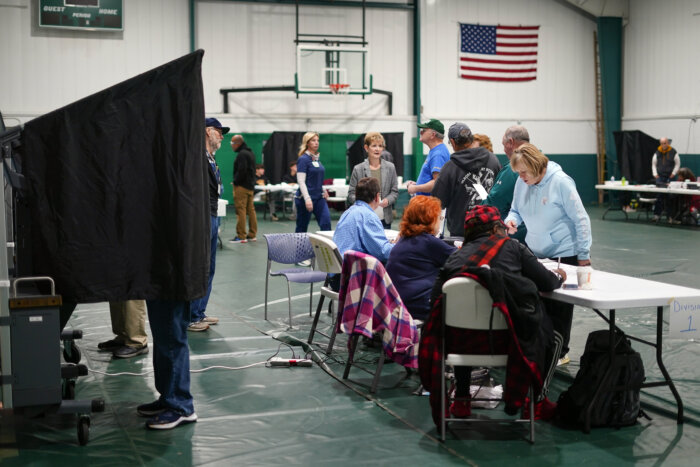 Brit Marling co-wrote and stars in “The East,” about a group of environmental activists
Brit Marling co-wrote and stars in “The East,” about a group of environmental activists
Credit: Getty Images
Brit Marling gets inside the mind of a covert operative in “The East” as both a co-writer (with director Zal Batmanglij) and an actress. She plays Sarah, a freelance agent tasked by a private intelligence firm to infiltrate a group of anarchist activists targeting environment-harming corporations. It was quite a task on both counts, she found, sparking some questions that still go unanswered.
In the film your character asks of herself, “Who does this kind of work?” Have you found an answer to that yet?
[laughs] That’s a good question. You know what? I’m honestly still trying to figure that out. It’s funny because acting and deep cover actually have a lot in common. In both disciplines you take on a different name and you take on a different set of characteristics and qualities. But with deep cover, the stakes are so high. You get caught in a moment of phoniness and you could be shot — which I don’t think they do that to actors. [laughs] But yeah, that question was so fascinating to me, this idea of a person who is willing to take those kinds of risks, who has that kind of — I don’t know — just that courage. And you must also be so willing to let go of your own identity for a large chunk of time to become someone else, which is a bit more of a fanciful thing.
Usually spy types are written with an unappealing or neglected home life, but she has a pretty nice setup waiting for her at home, which was very interesting.
We felt like that was really important, and that’s why it was so exciting that Jason Ritter was game to do the part. He’s someone you want to be around. He has a warmth and a generosity and a sincerity that, like, who wouldn’t want to be partners with somebody like that?
You’re careful not to come down too obviously on one side or the other in this, between the anarchist group and the private espionage firm tracking them.
We were really trying to do that. Patricia Clarkson is such a charismatic, alluring, intelligent actress, and we felt like it was important that the CEO of Hiller Brood be as charismatic and compelling as the leader of… well, there are no leaders in an anarchist group, but Benji (Alexander Skarsgard) is certainly your charismatic figure. And so it was important that there be a sort of equal balance in the attraction and the allure. I think all of the territory that the film is exploring is a lot of moral gray and complexity, and there are no easy answers. Even in the anarchist group they’re fighting about how far is too far. I guess as writers there isn’t even the danger of being preachy and didactic when you’re coming from a place of genuinely not knowing the answer but being very interested in provoking the questions, maybe. [laughs]
So do these sorts of companies actually exist?
Yeah, they do. It’s kind of crazy. Something like 40 percent of intelligence work is outsourced now to private espionage firms. You think of espionage as being at least under some kind of democratic oversight, in that it’s connected to the government and connected to law enforcement, and hopefully that’s grounded in some body of ethics that we the people have agreed upon. But with corporate espionage it’s a bit different because there is no body of ethics. It’s just about are you going to make more money next quarter than you did the last quarter? I think it’s a fascinating space because it’s largely unexplored.




























